P0088 Code – Fuel Rail/System Pressure – Too High
The OBD-II code P0088 refers to “Fuel Rail/System Pressure – Too High.” This code indicates that the fuel pressure in the fuel rail or fuel system has exceeded the predetermined threshold set by the vehicle’s engine control module (ECM). When the ECM detects that the fuel pressure is higher than expected, it illuminates the check engine light and stores the P0088 code.
The fuel system operates within a specific pressure range to ensure proper fuel delivery and combustion. However, when the fuel pressure becomes too high, it can lead to various issues and potentially cause damage to the fuel system components. Let’s get acquainted with common causes of the P0088 code in the next chapter.
Causes of OBD-II Code P0088
- Faulty fuel pressure regulator: The fuel pressure regulator is responsible for maintaining the optimal fuel pressure in the fuel rail. If it malfunctions or gets stuck in the closed position, it can cause excessive fuel pressure.
- Restricted fuel return line: The fuel return line allows excess fuel to flow back to the fuel tank. If it becomes restricted or blocked, it can cause a buildup of fuel pressure in the system.
- Malfunctioning fuel pump: A failing or faulty fuel pump can supply an excessive amount of fuel, resulting in high fuel pressure.
- Clogged fuel filter: A clogged or dirty fuel filter can restrict fuel flow and lead to increased pressure in the fuel system.
- Wiring or electrical issues: Problems with the wiring or electrical connections related to the fuel pressure sensor or fuel system components can cause inaccurate pressure readings and trigger the P0088 code. Wirings and electrical lines can be tested by multimeters (-volt -ohm meteres) with a little preparational efforts at the start.
How to Fix this OBD-II Code?
Fixing OBD-II code P0088 require involving of a systematic approach to address the underlying cause of the issue. Here are the steps to consider for resolving the P0088 code:
- Inspect the fuel pressure regulator: The fuel pressure regulator is a common culprit for high fuel pressure. Check for any signs of damage, leaks, or sticking. If found faulty, replace the fuel pressure regulator.
- Check the fuel return line: Ensure that the fuel return line is not obstructed or restricted. A blocked or clogged return line can cause excessive fuel pressure. If necessary, clear any obstructions or replace the fuel return line.
- Verify fuel pump functionality: Test the fuel pump to ensure it is delivering the correct pressure. Use a fuel pressure gauge to measure the fuel pressure at various points in the system. If the fuel pump is malfunctioning and providing too much pressure, replace it.
- Inspect the fuel filter: A clogged or dirty fuel filter can cause fuel flow restrictions and lead to high fuel pressure. Check the condition of the fuel filter and replace it if necessary.
- Check for wiring or electrical issues: Examine the wiring and connections related to the fuel pressure sensor and fuel system components. Look for any damaged wires, loose connections, or corroded terminals. Repair or replace any faulty wiring or connectors.
- Clear the code and test: After performing the necessary repairs, clear the code using an OBD-II scanner. Take the vehicle for a test drive to ensure the P0088 code does not return and that the fuel pressure is within the acceptable range.
How Much does It Cost to Fix the Code P0088?
The cost of fixing can vary depending on several factors. The total expense will depend on the underlying cause of the issue, the specific vehicle, and the labor rates in your area. Here are some cost considerations to keep in mind:
- Diagnostic Fee: If you take your vehicle to a mechanic or dealership, they will likely charge a diagnostic fee to identify the cause of the P0088 code. This fee can range from around $50 to $150 or more.
- Parts Cost: The cost of parts will depend on what needs to be replaced. For example, if the fuel pressure regulator is the cause of the high pressure, the cost of a new regulator can range from $50 to $200 or more, depending on the vehicle make and model. Other potential parts that may need replacement include the fuel pump, fuel filter, or related components.
- Labor Cost: The labor cost will depend on the complexity of the repair and the hourly labor rates charged by the repair facility. Since addressing the P0088 code often involves accessing and replacing components in the fuel system, it can be a moderately labor-intensive job. Labor rates typically range from $80 to $150 per hour, and the total labor cost can vary depending on the time it takes to complete the repair.
- Additional Repairs: In some cases, the high fuel pressure issue indicated by the P0088 code may be caused by multiple factors or may lead to the discovery of other related problems. Additional repairs or component replacements may be necessary, further impacting the overall cost.
Given these considerations, it is challenging to provide an exact cost for fixing. As a rough estimate, you can expect the total cost to range from $200 to over $1000, depending on the factors mentioned above.
Conclusion
When the P0088 code is detected, it is important to have the vehicle diagnosed and repaired by a qualified technician, or yourself if you are able to. The mechanic will perform a thorough inspection of the fuel system, check for any component failures, and conduct necessary repairs or replacements. Ignoring the P0088 code and continuing to drive with high fuel pressure can lead to potential engine damage, reduced fuel efficiency, and other performance issues.
Related Codes to DTC P0088
There are some codes that likely would have been shown along with the aforementioned code: P0087, P0089, P0090, P0091, P0092, P0093, P0094.
Can I continue driving with the P0088 code?
If you have the P0088 trouble code, it is generally not recommended to continue driving. The reason is that it may lead to potential engine damage and costly repairs onwards.
How is the code P0088 serious?
It is the sign of a potentially serious issue that should not be ignored. While it doesn’t pose an immediate danger to your safety, it can have adverse effects on your vehicle’s performance, fuel efficiency, and long-term reliability.
We do an efforts to find, research and recommend the best products. So, we may receive commissions from purchases that you make after following the links in our product reviews.


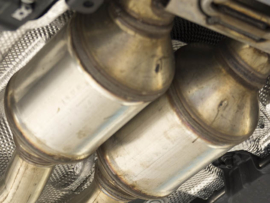
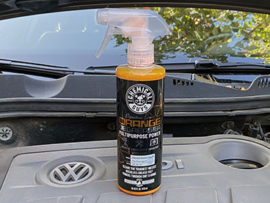
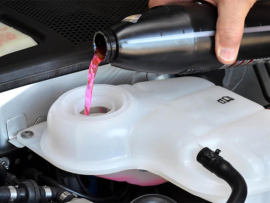
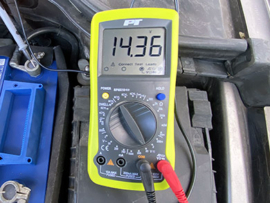
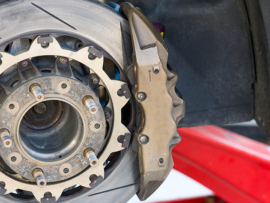
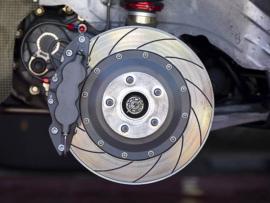
Leave A Comment